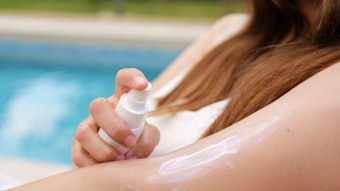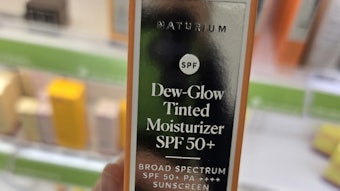During the Society of Cosmetic Chemists' (SCC) Annual Scientific Seminar, one keynote speaker, Betsy Schmalz Ferguson of American Flavors and Fragrances, noted a growing debate over the role of vitamin D in skin. (Follow C&T magazine for the complete event re-cap.) In response to her presentation, industry expert David Steinberg of Steinberg & Associates and C&T magazine author, commented that vitamin D was prohibited in cosmetic formulations in a number of countries.
Later in the seminar, Zoe Diana Draelos, MD, a dermatologist and fellow of the American Academy of Dermatology, explained that orally ingested vitamin D is necessary for calcium balance in the body. In addition, she commented that while many believe the ingredient benefits the body when ingested orally, encouraging individuals to expose themselves to UVB to increase their body's synthesis of vitamin D is controversial. However, regarding sunscreen, Draelos cautioned, "You can have too much of a good thing," noting it could inhibit the body's production of vitamin D.
Debate surrounding the benefit of vitamin D produced by the body and its ingested orally was also the topic of "Debating 'D'," an article featured in the June issue of Dermatology Times. According to the report, recent research on vitamin D is inconclusive and often contradictory. This report found that while research has shown vitamin D may help prevent certain diseases, some studies have proven the opposite. Henry Lim, MD, chairman of dermatology at the Henry Ford Hospital, noted in the report that proving that vitamin D could prevent certain illnesses would require large studies that no pharmaceutical manufacturers would support.
In the October 2009 issue of C&T magazine, Francoise Arnold, Michel Mercier and My Trinh Luu of MMP suggest, in "Metabolism of Vitamin D in Skin: Benefits for Skin Care Application," that supplying 7-dehydrocholesterol to the skin in a topical formulation is an easy way to take advantage of the barrier function, antimicrobial, UV protective, melanocyte action and hair follicle benefits of vitamin D.
Scientific debate continues and as more reports are released, consumer concerns are raised over the use of sunscreens and their potential to block vitamin D production in the body. Perhaps within this debate, as technology advances, there is an opportunity for sun care developers to target sunscreens that allow for the production of vitamin D in the body yet block the harmful effects of UV.










